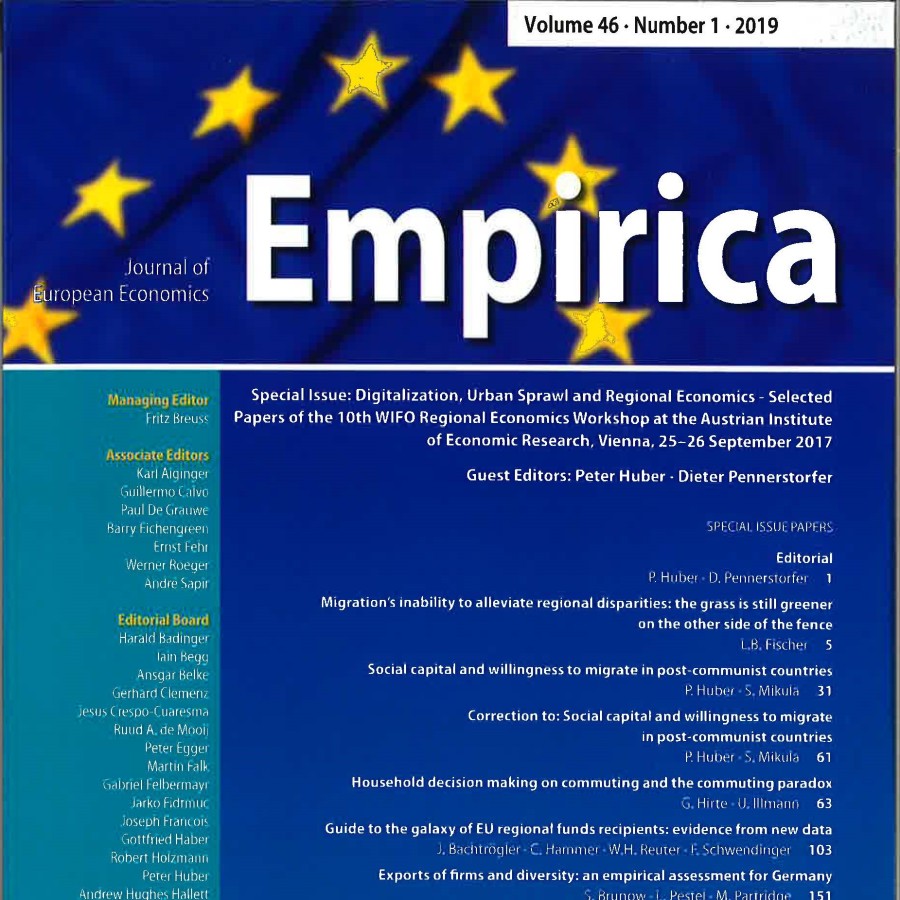The Empirica special issue also contains two articles (co-)written by WIFO researchers. WIFO regional economist Julia Bachtrögler, Christoph Hammer and Florian Schwendinger (WU Vienna) as well as Wolf Reuter (Deutscher Sachverständigenrat) present a new dataset which can be used to illustrate the distribution of EU structural funds among companies and beneficiaries. In particular, they document the considerable regional heterogeneity of the distribution of funds for specific projects and beneficiaries between countries. WIFO regional economist Peter Huber and Stepan Mikula (Masaryk University Brno) examine the impact of social capital on migration decisions. They show that the low level of social capital in the former communist countries makes a significant contribution to explaining the low propensity to migrate in these countries.
The Geoffrey Hewings Workshop on Regional Development and Regional Policy is an annual WIFO event, which is attended by international researchers and took place for the 11th time in autumn 2018. This workshop received its name because of the active support of the internationally recognised regional economist and WIFO International Board member Prof. Geoffrey Hewings in organising this event.
Prof. Hewings was professor at the University of Illinois in Urbana-Champaign and is co-founder of the Regional Economics
Applications Laboratory (REAL) and member of the scientific advisory board of WIFO. In his numerous publications, Hewings
focuses on the question of modelling regional economic cycles. In the course of his career he has held several important honorary
positions in international research associations. In recognition of his academic work and his outstanding support of numerous
young scientists, the North American Regional Science Council annually awards a prize for the best doctoral thesis bearing
his name.
Empirica Special Number: https://link.springer.com/journal/10663/46/1
A short report about the 11th Geoffrey J.D. Hewings Regional Economics Workshop


